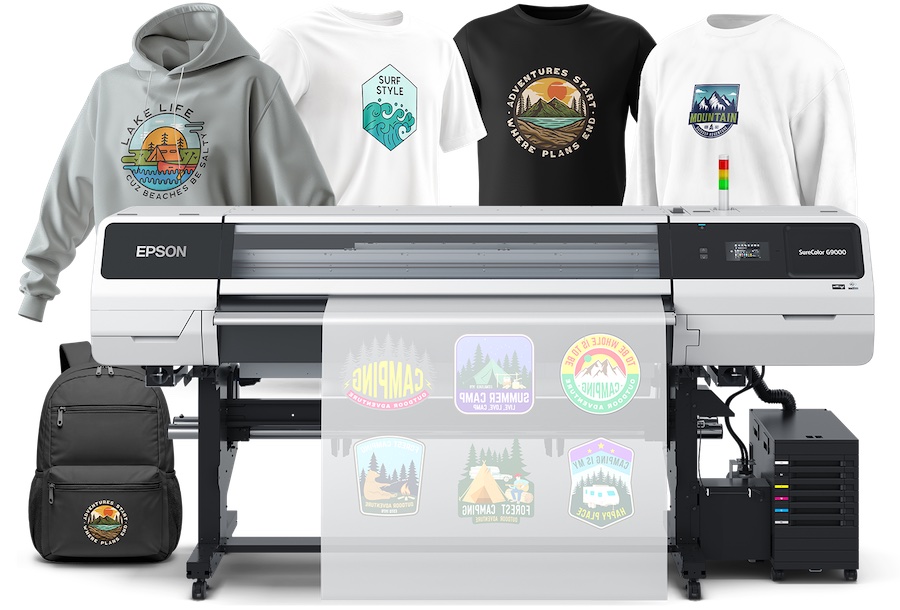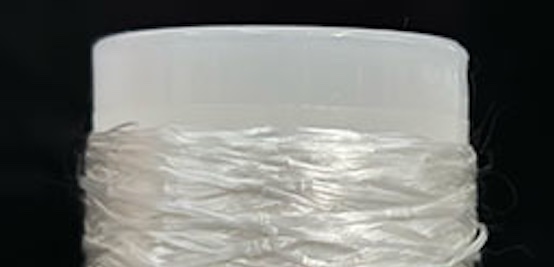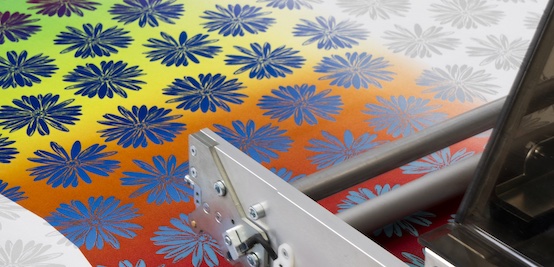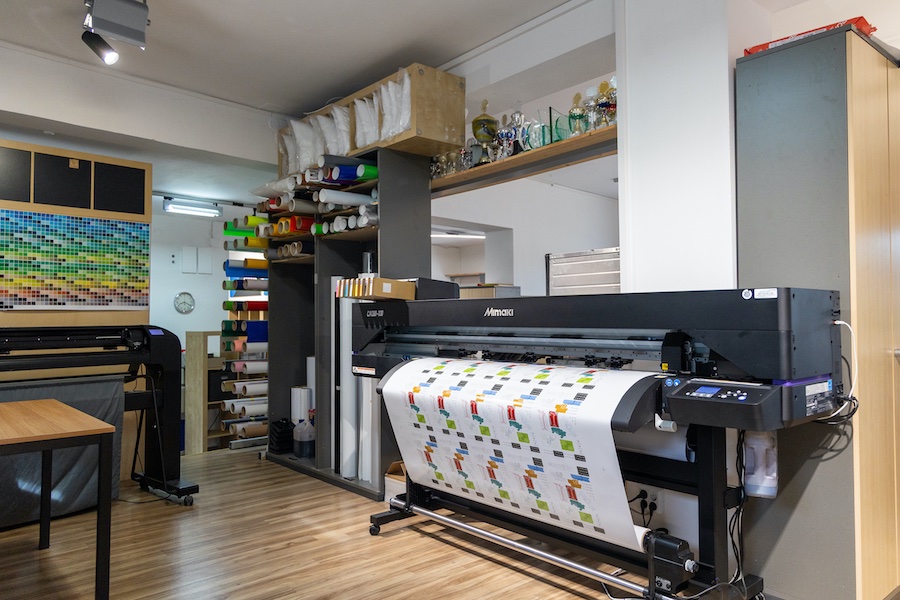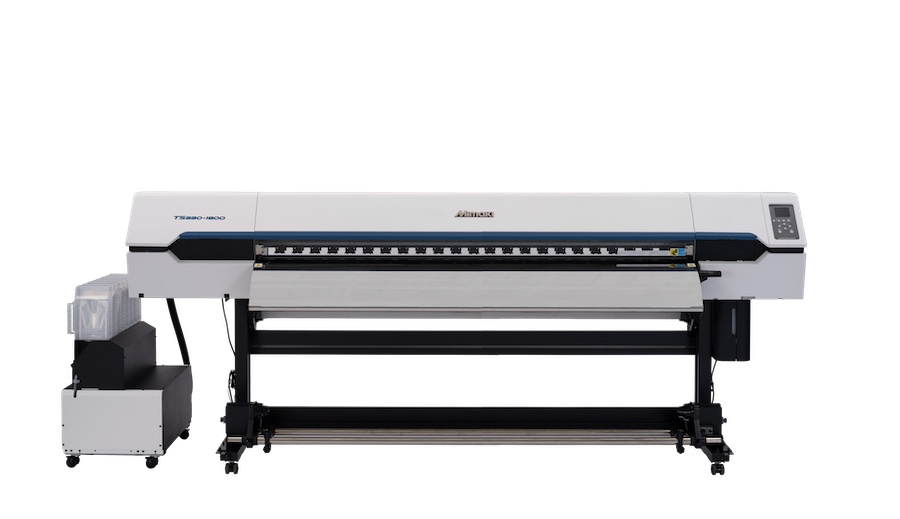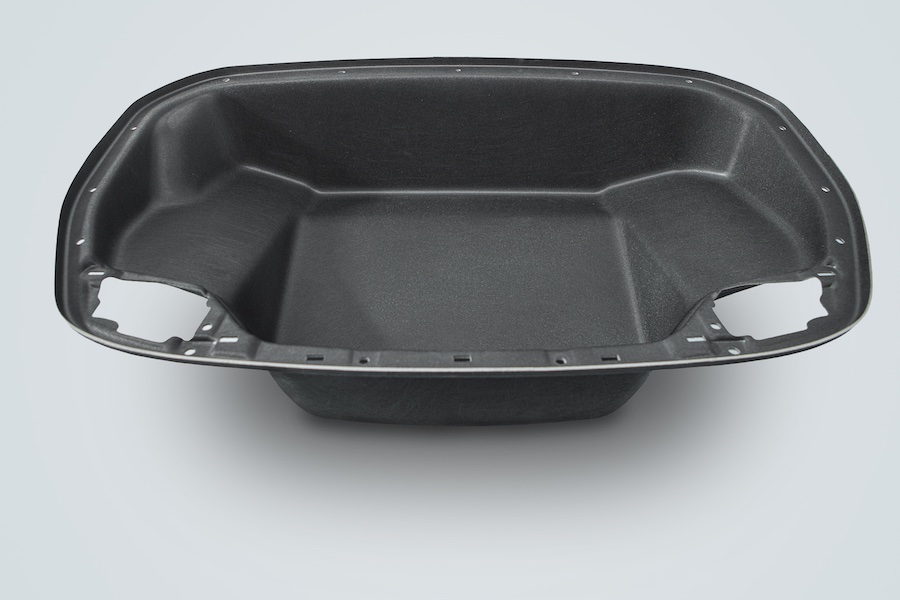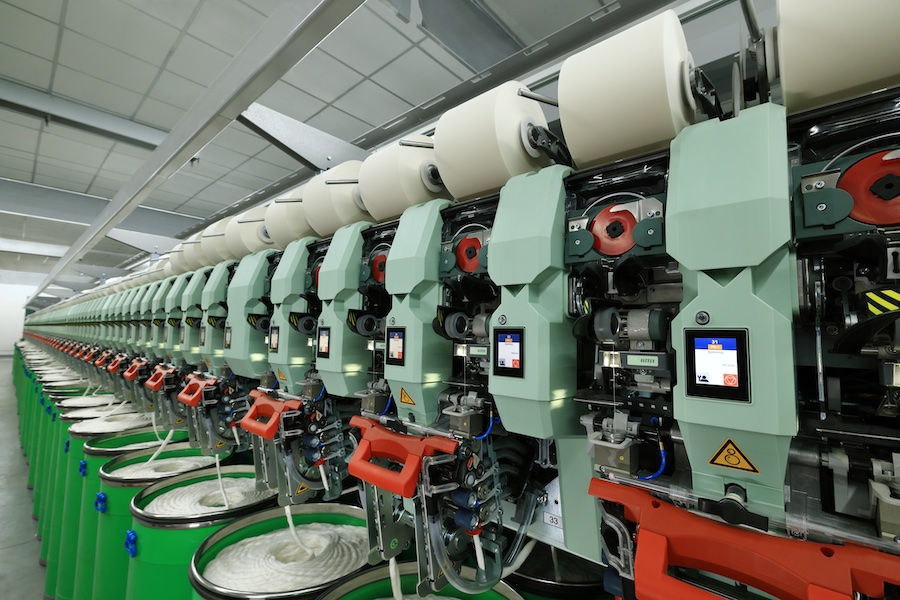#Digital Printing
Epson and designer Yuima Nakazato unveil the future of sustainable fashion at Paris Fashion Week
Partnership combines digital textile inkjet and dry fiber technologies to create new clothes from recycled, refiberised fabrics
The new collection has been created, in most part, using a combination of Epson's more sustainable digital textile printing technology and a new fabric production process that has the potential to transform the fashion industry, contributing significantly to the creation of an innovative, colourful, and ground-breaking collection of beautifully designed couture pieces.
Epson's dry fiber technology, which is already used commercially to recycle paper and requires virtually no water to produce, has been adapted to produce new non-woven re-fiberised fabric from used and discarded garments.
This experimental fabric production process was first revealed in January this year as part of a three-year collaboration between Epson and YUIMA NAKAZATO. Now, for the show in July, Epson has made further significant advances to the quality of the fabric, making it thinner, more flexible and much easier to print on using Epson's sustainable Monna Lisa direct-to-fabric digital textile printing technology.
As the new collection is revealed, Epson and YUIMA NAKAZATO will raise awareness of the water and material waste associated with traditional and excessive garment production. The Paris Show in July will illustrate how switching to digital textile printing using more sustainable pigment inks offers the fashion industry a less wasteful and more environmentally responsible means of textile printing.1
The new couture range on display at the Palais de Tokyo has been printed on using the Epson ML-13000. This is a prototype and highly flexible direct-to-fabric digital textile printer capable of achieving vivid colours with pigment inks on a wide variety of fabrics and surfaces.
The fabric taken to create the new YUIMA NAKAZATO fashion line was derived from material from used garments sourced from Africa, the destination for many discarded garments from elsewhere in the world. Yuima Nakazato visited Kenya where he purchased around 150 kg of used garments destined for the many "clothes mountains" that comprise discarded Western garments. Epson then applied its dry re-fiberisation process to the waste material which resulted in the production of over 150 metres of non-woven fabric, which was then printed on using pigment inks by Epson's Monna Lisa digital printing technology.2
Hitoshi Igarashi from Epson's Printing Solutions Division explains the importance of the technology: "Although in its early stages, Epson believes its dry fiber technology combined with pigment ink digital printing could offer the fashion industry a much more sustainable future, significantly reducing water use while allowing designers the freedom to fully express their creativity.
"Since January this year Epson has continued to make significant advances in the quality and printability of re-fiberised fabric. It is now less dense, tougher and much more flexible, making it better suited for printing on using Epson's Monna Lisa direct-to-fabric digital textile printer. The fabric used this time was much thinner than before, leading to a 37.5% weight reduction from 160 g/m2 previously to 100 g/m2 now.
"The ML-13000 significantly contributes to reducing the environmental footprint. It uses a pigment ink process that leads to a 96% reduction in water3 use compared to dye-based inks. It has also increased productivity by 300% compared to conventional production processes thanks to an inline solution involving built-in pre- and post-printing processes.
"The prototype ML-13000 is capable of printing not just ink, but also three different types of liquid onto fabric at the same time, thereby enhancing brilliance, durability, and flexibility. Epson has utilized this printer to print on fabric with an optimized balance of ink and liquids.
"This innovation achieves quick production, reducing water usage, and saving use of energy. This initiative shows how discarded garments can be upcycled into new types of clothing thanks to the combination of YUIMA NAKAZATO's creativity and Epson technology.
"Epson's Environmental Vision commits us to contributing to a circular economy, and this development could be one step towards achieving this. Although still at the experimental stage with textiles, we believe dry fibre technology has tremendous potential for making the fashion industry more sustainable."
1) Digital textile printing using pigment inks offers a more sustainable approach to the fabric production process compared with traditional analog methods. In addition to pigment inks requiring significantly less water, the digital process requires far fewer stages and is less complex. Unlike analog it requires no plate production, washing or storage, results in little disposal of used inks, and allows on-demand production that contributes to less waste.
2) Epson's Monna Lisa digital Direct-to-Fabric printers use less water compared with analogue methods. Pigment inks are more eco-friendly. Epson GENESTA pigment inks are GOTS approved by ECOCERT.
3) Fuluhashi Environmental Institute, 2021 "Report on Direct Water Input in Digital Textile Printing"



